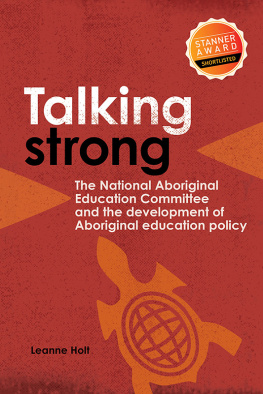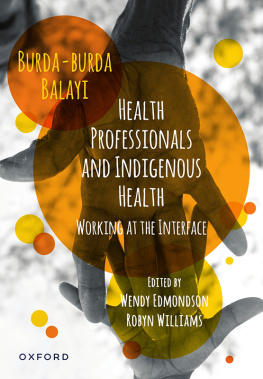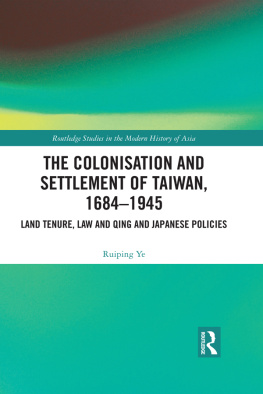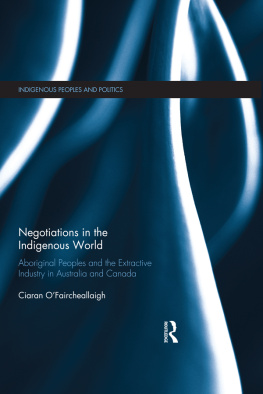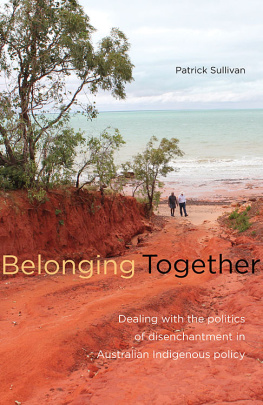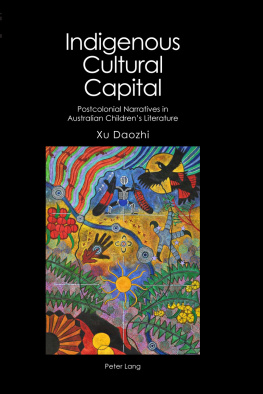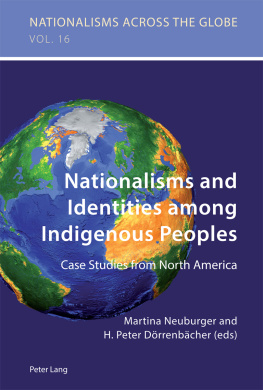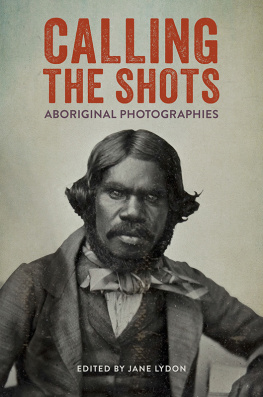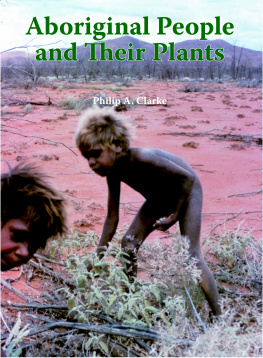After Mabo
Interpretations
This series provides clearly written and up-to-date introductions to recent theories and critical practices in the humanities and social sciences.
General Editor
Ken Ruthven (University of Melbourne)
Advisory Board
Tony Bennett (Griffith University)
Penny Boumelha (University of Adelaide)
John Frow (University of Queensland)
Sneja Gunew (University of Victoria, British Columbia)
Robert Hodge (University of Western Sydney)
Terry Threadgold (Monash University)
Already published:
Cultural Materialism , by Andrew Milner
Metafictions ?, by Wenche Ommundsen
Nuclear Criticism , by Ken Ruthven
A Foucault Primer , by Alec McHoul and Wendy Grace
In preparation:
Framing and interpretation, by Gale MacLachlan and Ian Reid
Masculinities and identities, by David Buchbinder
Multicultural literature studies, by Sneja Gunew
Postmodern socialism, by Peter Beilharz
The body in the text, by Anne Cranny-Francis
Post-colonial literature, by Anne Brewster
After Mabo
Interpreting Indigenous Traditions
Tim Rowse
MELBOURNE UNIVERSITY PRESS
1993
Designed by text-art
Typeset in 10 point Garamond
Printed in Malaysia by SRM Production Services Shd Bhd for
Melbourne University Press, Carlton, Victoria 3053
U.S.A. and Canada: International Specialized Book Services Inc.,
5804 N.E. Hassalo Street, Portland, Oregon 97213-3644
United Kingdom and Europe: University College London Press,
Gower Street, London WC1E 6BT
This book is copyright. Apart from any fair dealing for the purposes of private study, research, criticism or review, as permitted under the Copyright Act, no part may be reproduced by any process without written permission. Enquiries should be made to the publisher.
Timothy Michael Rowse
ISSN 1039-6128
Grateful acknowledgement is made to the Publications Sub-Committee, on behalf of the Committee on Research and Graduate Studies of the University of Melbourne, for a grant towards costs of production.
National Library of Australia Cataloguing-in-Publication data
Rowse, Tim, 1951- .
After Mabo : interpreting indigenous traditions.
Bibliography.
Includes index.
ISBN 0 522 84492 8.
[1.] Aborigines, AustralianHistoriography. [2.] Aborigines,
AustralianEthnic identity. [3.] Aborigines, Australian
Public opinion. 4. Public opinionAustralia. 5. Australia
Race relations. I. Title. (Series : Interpretations).
305.89915
Contents
Preface
I have written this book primarily for Australians who are thinking affirmatively about the place of indigenous cultures in the life of their nation. I hope to illustrate variety among ways of thinking about indigenous Australians. Affirmative thinking includes many strands; there are many ways to recognise Aboriginality as a challenge for Australian politics and cultural identity. Though all representations of Aboriginality are contentious (including those issuing from the mouths and pens of indigenous Australians themselves), we are likely to find some representations more defensible than others.
The themes of this book were conceived with both academic and non-academic readers in mind. I deal in Chapter 1 with the possibility that, newly informed by history and ethnography, we can believe Australia to possess the moral community that some judges of the High Court implied when, in their 1992 Mabo judgment, they revised our Common Law. In Chapter 2, I draw attention to alternative conceptions of indigenous cultural survival which can be found in historical, ethnographic and autobiographical writing: one emphasising the damage wrought by colonial institutions, the other, indigenous resilience. In Chapter 3, I discuss the common but barely articulated perception that Aboriginal politics is a betrayal of Aboriginal culture and vice versa. How to read the Aboriginality of Aboriginal art and autobiography is the question animating Chapter 4, concerned for the most part with Ruby Langfords Dont Take Your Love to Town . Finally, I turn to the problems of representing indigenous Australians as actors upon the natural world. A short Afterword sets out my approach to the emerging critique of what some, inspired by Edward Said, call Aboriginalism.
Acknowledgements
The time to write this book came from the patronage of the Australian Studies Centre at the University of Queensland (thank you Geoffrey Bolton and John Frow), the Australian Centre at the University of Melbourne (Stephen Knight and Chris Wallace-Crabbe) and the Menzies School of Health Research (John Mathews). In Brisbane I was particularly helped by Graeme Turner, Jo Robertson, Bronwen Levy, Carole Ferrier, Bruce Rigsby, Nancy Williams, Paul Memmott and Lynne Hume. In Melbourne, David Goodman, Ken Ruthven, Terry Collits, Jane Jacobs, Martha Macintyre, Ken Gelder, Marion Campbell, Diane Muller, Stuart Macintyre, Patrick Wolfe, Katie Holmes, Kerryn Goldsworthy, John Morton, Simon During, Chris Healy, Dipesh Chakrabarty and Helen OShea assisted me in various ways, usually over lunch. Jeremy Beckett, David Trigger, Alan Rumsey and Francesca Merlan discussed particular points with me from a distance.
Is my title offensive to the people of Mer (Murray Island) and, in particular, to the late Eddie Mabos kin and friends? Nonie Sharp helped me to pursue this question with Ron Day, Chairman of the Mer Island Council, who assured me that the title of this book is not an offence against custom or feelings.
Alana Garwood of the Australian Institute of Aboriginal and Torres Strait Islander Studies Library gave last-minute assistance with references. Jackie Huggins was an encouraging office-mate and John Henry Huggins was extremely patient with us both. Shovel in hand, Mark Stafford-Smith said I should not neglect to write on Aborigines and Nature, and Dick Kimber, Lynn Baker and Steve Morton, among other students of arid-zone ecology, showed me why he was right. Finally, I would like to thank Venetia Nelson and Ken Ruthven for their patient editing of the manuscript.
Jan Mackay and Anna Georgia Mackay made me glad to come home from ridiculous hours in the office, and I dedicate this book to them.
In a slightly different form, Chapter 1 appeared in Meanjin 2, 93 (Rowse 1993b), and much of Chapter 4 appeared in Australian Literary Studies (Rowse 1993a); thanks to Jenny Lee and Laurie Hergenhan respectively.
Mabo and Moral Anxiety
Because we know you mob now...
For Australians who are neither Aboriginal nor Islander in descent, the task of rethinking the nations responsibility to indigenous people requires both moral and practical reasoning about the coexistence of settler and indigenous cultures. To reason in moral terms about the nations very foundations in law, about the traditional and the adapted moralities of indigenous people and about the sympathies of contemporary Australians, is to engage with matters that are not so much imponderable as endlessly ponderable, because they are not amenable either to final pronouncement or to definitive arbitration by reference to the facts. I do not mean to imply contempt for such moral discourse. I am convinced of both the necessity and the elusiveness of moral argument, if we are to reimagine our community and contribute to what John Eddy has called an imaginative emergence of a true commonwealth (Eddy, 1992:18).


